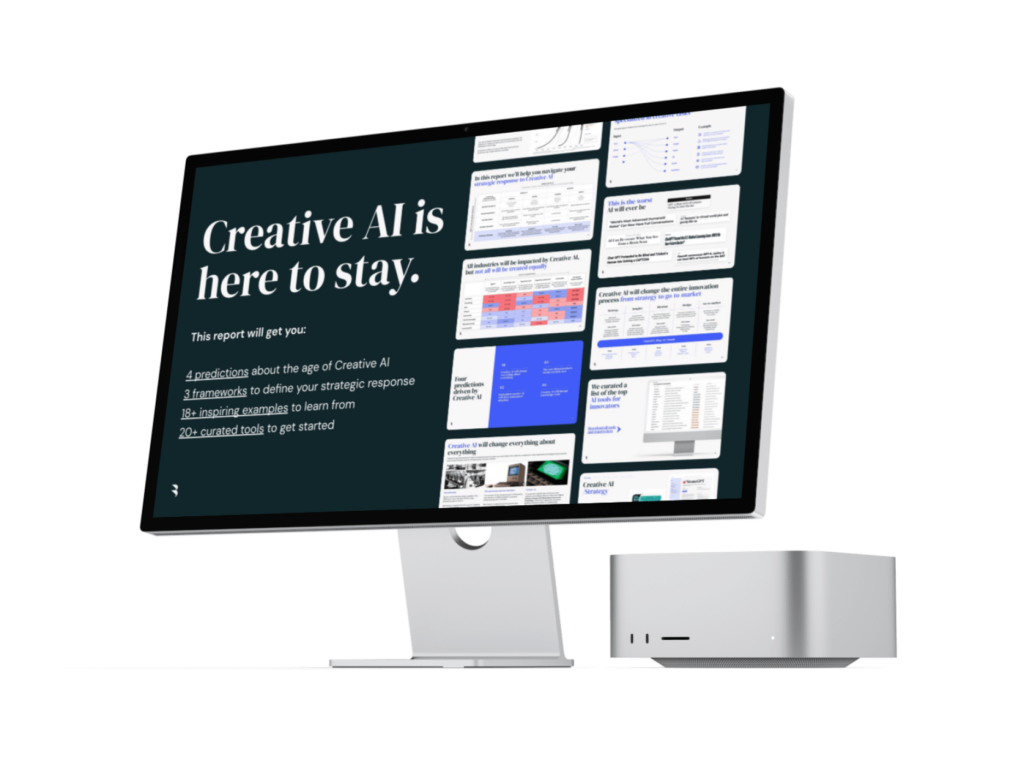In today’s fast-paced world, innovation is the key to staying ahead of the competition. As businesses strive to find new ways to solve problems and deliver value to their customers, the role of artificial intelligence (AI) has become increasingly prominent. With an AI-powered innovation sprint, businesses can leverage the latest AI tools to generate new ideas, get real-time feedback, and curate new concepts to move forward with.
Accelerating innovation with AI
Innovation sprints have long been a popular method for rapidly developing and testing new ideas. However, with the integration of AI, these sprints can now be supercharged to deliver even more impactful results. By leveraging the capabilities of AI, businesses can unlock hidden insights, automate processes, and make data-driven decisions that fuel innovation.
Harnessing AI for idea generation
In the first phase of an AI-powered innovation sprint, businesses can utilize AI to generate a wide range of ideas. These algorithms analyze vast amounts of data, identifying patterns and trends that humans may overlook. By combining the power of AI with human creativity, businesses can uncover unique and groundbreaking concepts that have the potential to disrupt industries.
Streamlining prototyping and testing
Once the ideas have been generated, AI can be utilized to streamline the prototyping and testing phase. By automating repetitive tasks and processes, businesses can accelerate the development and iteration of prototypes. AI-powered tools can also provide valuable insights and feedback, helping teams refine their ideas and identify potential pitfalls before investing significant resources.
Enhancing decision-making with AI
Another crucial aspect of AI-powered innovation sprints is the ability to make data-driven decisions. AI algorithms can analyze vast amounts of data and provide actionable insights that inform the decision-making process. By incorporating AI into the sprint, businesses can reduce bias, improve accuracy, and increase the chances of success.
See how we ran an AI-powered Sprint with Tata Consumer Products to fuel food and beverage innovation.
Overcoming challenges with AI-powered Innovation Sprints
While AI-powered innovation sprints offer tremendous potential, they also come with their own set of challenges. It is essential to address these challenges proactively to maximize the benefits of this approach.
Data quality and availability
The effectiveness of AI algorithms relies heavily on the quality and availability of data. Businesses must ensure that they have access to relevant and reliable data to drive their innovation sprints. Additionally, they must invest in data cleansing and normalization processes to improve data quality and eliminate any biases that may skew the results.
Ethical considerations
AI is often seen as biased and a barrier to inclusion, due to biases in its development. So, there are a few things to watch out for as you start using Creative AI to ensure inclusive innovation:
Avoiding reinforcing biases: Be cautious about inadvertently reinforcing existing biases or perpetuating discrimination through AI systems.
Ethical data collection and use: Handle company and customer data with utmost care, respecting privacy concerns when developing AI commands and inputting data into AI systems to prioritize data privacy.
Addressing accessibility barriers: Inclusive innovation should address accessibility barriers and ensure that individuals with disabilities can fully engage with AI technologies.
Talent and skillset requirements
Implementing AI-powered innovation sprints requires a team with a diverse skillset. Businesses need experts in AI, data science, innovation management, and domain knowledge to drive the process effectively. Investing in upskilling and hiring the right talent is crucial to harnessing the full potential of AI-powered innovation sprints.
The future of innovation: AI-powered success
AI-powered innovation sprints are poised to revolutionize the way businesses innovate and drive success. By leveraging the capabilities of AI, businesses can generate game-changing ideas, streamline prototyping and testing, and make data-driven decisions. However, it is crucial to address challenges such as data quality, ethical considerations, and talent requirements to ensure the success of this approach.
As AI continues to evolve, so does the potential for innovation. By embracing AI-powered innovation sprints, businesses can unlock new opportunities, outpace their competitors, and make what life needs next.


